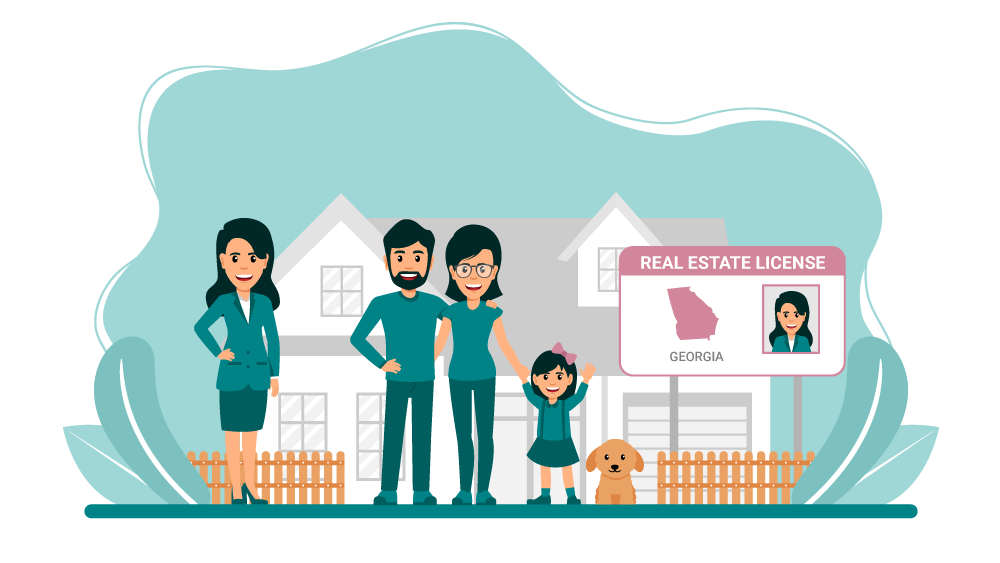When you get your real estate license, the first year is always the hardest. It can be difficult to navigate your first year as a real estate agent without some help. If you want to be successful, you should know what to expect in your first year.
You will need a strong work ethic, and you will also need a budget to find success. It’s also important to have all the right tools, including a computer, a contact management system, a reliable vehicle, and a good network.
If you thought you’d become a successful real estate agent overnight, you’re in for a rude awakening. Real estate isn’t a career you can go into hoping to make fast and easy money. It takes time to build up your career, and you need to know what to expect.
Before we get into a few ways you can navigate your first year as a real estate agent; it’s important to start with the basics. Let’s look at the licensing requirements and some of the things to expect in your first year.
Real Estate Agent Licensing Requirements
It’s not legal to work as a real estate agent without the proper license. You will need to get a real estate license in your state. The requirements and fees vary from one state to another. However, the process is the same, for the most part.
You will complete pre-licensing education, take the exams, complete post-licensing education (in some states), activate your license, and find a sponsoring broker. Some brokerages will have requirements that go beyond the state requirements, too.
In every state, you will need to pass a criminal background check. This will also include being fingerprinted. You will also need to be 18 years of age in most states and a legal U.S. resident.
What to Expect in Your First Year as a Real Estate Agent
Your first year in any new career is going to be challenging. Becoming a real estate agent is a bit different, however. Since your pay will be 100% commission-based, you need to know what to expect in your first year as a real estate agent.
It starts with realistic financial goals. If you think you’re going to become rich in a few months, you’re not being realistic. It might take you a few months to earn your first commission, and you need to be prepared for what is likely, not a pipe dream.
Do your research and figure out what you should expect when it comes to your financial goals. It’s better to set lower expectations and exceed them than set too high of goals and fall short. You may even need to work a second job to support yourself at first.
It’s also important to know your employment status. You are not an employee of the broker you are affiliated with. Likely, you will be an independent contractor, which means you are responsible for your own taxes. It also means you are basically self-employed and running your own business.
Since you are basically working for yourself, you will also be in charge of your own health insurance and retirement. Make sure you track all your expenses, too. This will come in handy when you file your taxes.
It can be helpful to have an accountant or tax expert to help you with this your first year and further on. You want to make sure you know how to properly file your taxes and get the right tracking software or apps for your expenses.
There are a lot of new things to learn during your first year as a real estate agent. While your pre-licensing course will help some, you might want to take additional courses to help give you realistic expectations. This is not a career you can become successful in without hard work.
6 Tips to Navigate your First Year as a Real Estate Agent
1. Always Be Prospecting
Real estate agents need a healthy pipeline of leads. You want to prospect for new leads every single day in your first year. After you build things up, you might not need to prospect as much, but in your first year, you are building a foundation.
It’s best to start learning how to systematize your daily prospecting. You want to do more than make a few phone calls or send out a few emails. There are many ways to go about prospecting, and you need a good system in place to help you.
2. Create and Follow a Financial Plan
You certainly need a budget, but it has to go beyond just a budget. As a first-year real estate agent, you need a financial plan for the entire year. It can take three to six months to get your first paycheck. After that, you might get paid more regularly, but you have to build up your clientele first.
This is one of the main reasons new agents fail and quit. They don’t plan for the first year financially. Make sure you look at what to expect and have a financial plan for your first year.
Remember, it can take 30 to 60 days for the escrow period when you find a buyer for a home. Even if you find a buyer or help a seller in your first few weeks, it can take another two months to get paid for that work.
Set up a financial plan and know how you will handle things at home and for your business. you need to have a plan or this can be what breaks you as a real estate agent.
3. Be Available, but with Some Boundaries
Your clients need you available when they are available. Don’t expect to work a 9-to-5, Monday through Friday work week as a real estate agent, especially in your first year. If you try this, you will fail.
Real estate agents work nights and weekends, so get used to it. Your schedule won’t be very regular, and you will work odd hours. However, you can have some boundaries with clients.
While your schedule should allow you to be available when your clients are available, you also want to be responsive. If possible, respond to emails, text messages, and phone calls as fast as you possibly can. You can also set expectations with clients when you first take them on.
4. Specialize
It’s best to specialize in a specific area of real estate as soon as possible. For example, maybe you want to work with first-time homebuyers or luxury sellers. Specialize as soon as possible and get the right certifications and training in that area.
While you are specializing, you will likely still take any deal that comes your way. After all, you need the experience and the commission check. However, make sure you are trying to market yourself in your specialty and working to become an expert in your niche.
There are many real estate niches to consider. You can work with a specific type of buyer or seller, a type of property, or even a specific geographic location. Consider what you enjoy about real estate and match that with your specialty.
5. Get Online ASAP
The world is found on the internet these days. As a real estate agent in your first year, you need to get online ASAP and establish your presence. Get a website, set up social media accounts, and start using it all.
Blogging can be a very powerful option online, too. You can even hire a writer to help you with your real estate blog. This can give you something to share on your social media pages and help you gain better search engine optimization for your website.
You can even take classes in online marketing to build your presence. With over 90% of people searching for a new home online first, you need to have a strong online presence.
6. Choose Your Broker Wisely
You cannot just choose any real estate broker. Some are better than others. You need a broker that will fit with your style of working and give you the support you need. It’s also important to look at the commission split, but this might not be the most important part of choosing a broker.
The size of the brokerage can make a difference. Check out the quality of their listings, as well. Do they offer training, good technology, or even a marketing budget to help first-year real estate agents?
If the broker is affiliated with the National Association of Realtors, this can be a bonus. Of course, where they are located will also make a difference for you.
Your first year as a real estate agent will be a big change and can be challenging. With these tips and the right plan in place, you can have a more successful first year. Make sure you are prospecting often and working hard. If you are not willing to put in the work and you expect to become a successful real estate agent fast, you will likely fail before you complete your first year.



